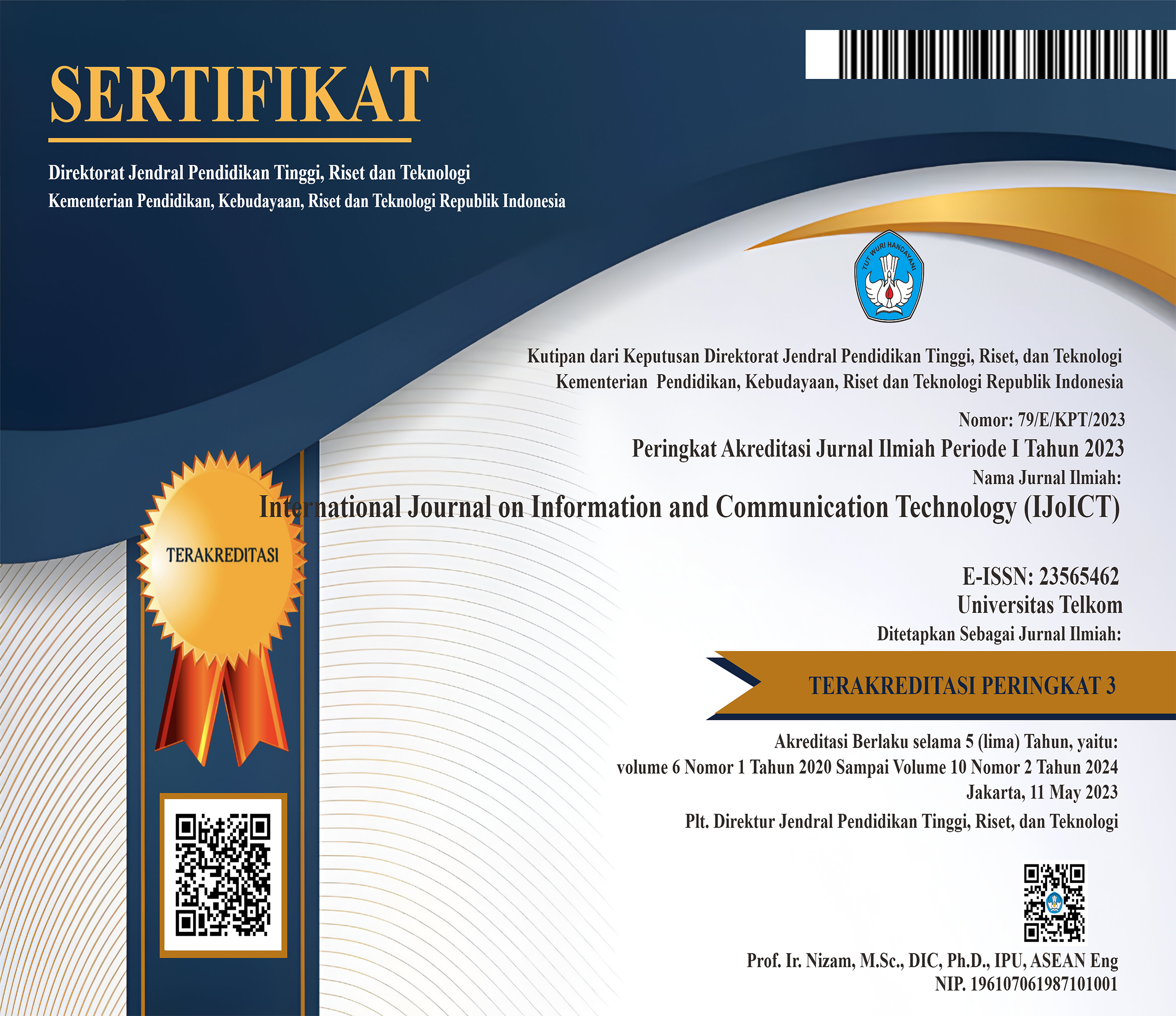A Persuasive Technology for Managing Waste Disposal through Smart Trash Bin and Waste Disposal Tracker
DOI:
https://doi.org/10.21108/IJOICT.2020.61.117Abstract
Waste management issue is a relevant topic that had been focused on many persuasive technologies. This issue is not only related to getting disposed of waste in proper places but also reducing waste disposal volume. This paper proposes a persuasive system that aims both goals by providing a smart trash bin and waste disposal tracker. The smart trash bin is an IoT-featured trash bin whereas waste disposal tracker is a mobile application which can record user daily waste disposal volume statistic. Based on the evaluation, our proposed system has achieved both goals. Additionally, it also solves several impediments such as incapability of moral background to encourage people to dispose waste on the trash bin, boring and monotonous waste disposal activity, and discouragement for disposing waste due to full trash bin. In order to attract people, our system includes attractive mechanisms such as playful experience, reflective experience, and gamification. Playful experience is applied to a smart trash bin, whereas the other two are applied to the waste disposal tracker.
Downloads
References
Berengueres, J., Alsuwairi, F., Zaki, N., Helli, S. A., & Ng, T. (2013). Gamification of a recycle bin with emoticons. The 8th ACM/IEEE international conference on Human-robot interaction. Piscataway.
Bottle Bank Arcade Machine. (n.d.). Retrieved 12 08, 2009, from http://www.thefuntheory.com/bottle-bank-arcade-machine
Comber, R., Thieme, A., Rafiev, A., Taylor, N., Kramer, N., & Olivier, P. (2013). BinCam: Designing for Engagement with Facebook for Behavior Change. INTERACT 2013. Berlin.
Fitbit Official Site for Activity Tracker. (n.d.). (Fitbit, Inc) Retrieved 8 29, 2016, from https://www.fitbit.com/
Fogg, B. J. (2006). The six most powerful persuasion strategies. PERSUASIVE 2006.
Gartland, A. A., & Piasek, P. (2009). Weigh your waste: A sustainable way to reduce waste. CHI '09 Extended Abstracts on Human Factors in Computing Systems.
Lessel, P., Altmeyer, M., & Kruger, A. (2015). Analysis of Recycling Capabilities of Individuals and Crowds to Encourage and Educate People to Separate Their Garbage Playfully. The 33rd Annual ACM Conference on Human Factors in Computing Systems. Seoul.
Paulos, E., & Jenkins, T. (2005). Urban probes: encountering our emerging urban atmospheres. The SIGCHI Conference on Human Factors in Computing Systems. New York.
Reif, I., Alt, F., Hincapie, J. D., Poteriaykina, K., & Wagner, J. (2010). Cleanly: trashducation urban system. CHI '10 Extended Abstracts on Human Factors in Computing Systems.
Seaborn, K., & Fels, D. I. (2015). Gamification in theory and action: A survey. International Journal of Human-Computer Studies, 74, 14-31.
The World's Deepest Bin. (n.d.). Retrieved 12 08, 2009, from http://thefuntheory.com/worlds-deepest-bin
Thieme, A., Comber, R., Miebach, J., Weeden, J., Kramer, N., Lawson, S., & Olivier, P. (2012). "We've Bin Watching You" - Designing for Reflection and Social Persuasion to promote Sustainable Lifestyles. The SIGCHI Conference on Human Factors in Computing Systems. New York.
Tscheligi, M., & Reitberger, W. (2007). Persuasion as an ingredient of societal interfaces. In interactions - Societal interfaces: solving problems, affecting change (pp. 41-43). New York: ACM.
Downloads
Published
How to Cite
Issue
Section
License
Manuscript submitted to IJoICT has to be an original work of the author(s), contains no element of plagiarism, and has never been published or is not being considered for publication in other journals. Author(s) shall agree to assign all copyright of published article to IJoICT. Requests related to future re-use and re-publication of major or substantial parts of the article must be consulted with the editors of IJoICT.








.png)

.jpg)




